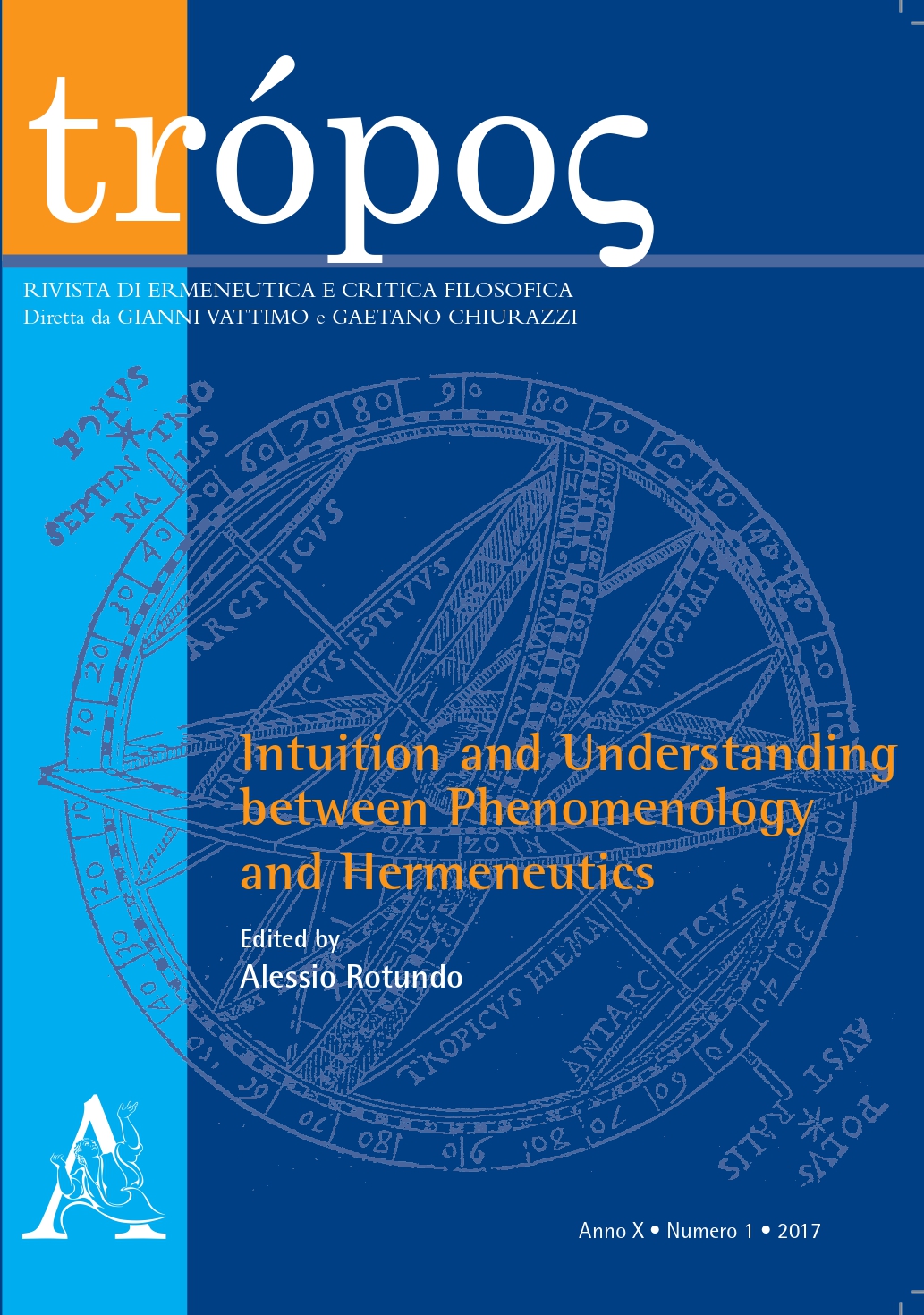V. 10 N. 1 (2017): Intuition and Understanding between Phenomenology and Hermeneutics

Can we still validly study the notions of “intuition” and “understanding”? Do the shifts in meaning to which these words have been subject exclude a renewed attempt to look for the unitary meaning that may subtend their various uses? For instance, in Latin, the word “intuition” comes from the verb intuèri, which alludes to the domain of visual perception (tuèri literally means “to look at”). On the other hand, as Gadamer reminds us in Truth and Method, “understanding” expresses the idea of relation to another, meaning that has its source in the legal domain. Indeed history has charged these terms with ever richer meaning; on the other hand, however, can the ultimate signification of each of these terms be understood without referring to what has always been intended by those who use these words?
The present volume aims to offer a renewed attempt to think the notions of intuition and understanding in the context of phenomenological and hermeneutical analysis. The volume aims thereby also at highlighting common traits and distinguishing characteristics of the two philosophical currents in their approaches and conceptualization of these two ideas.


